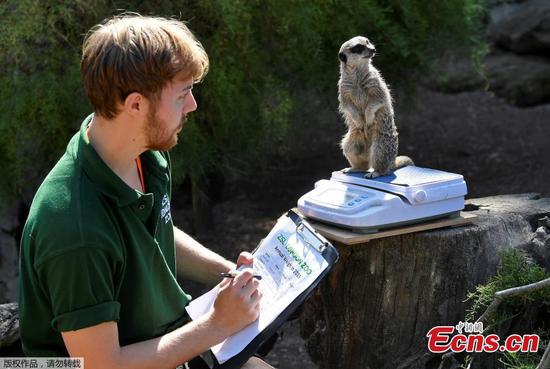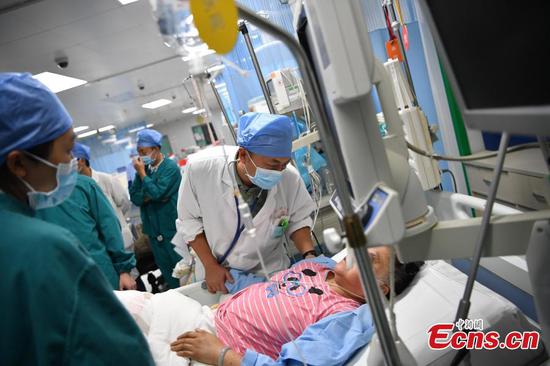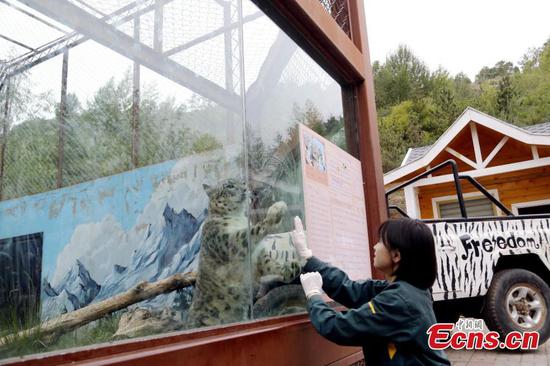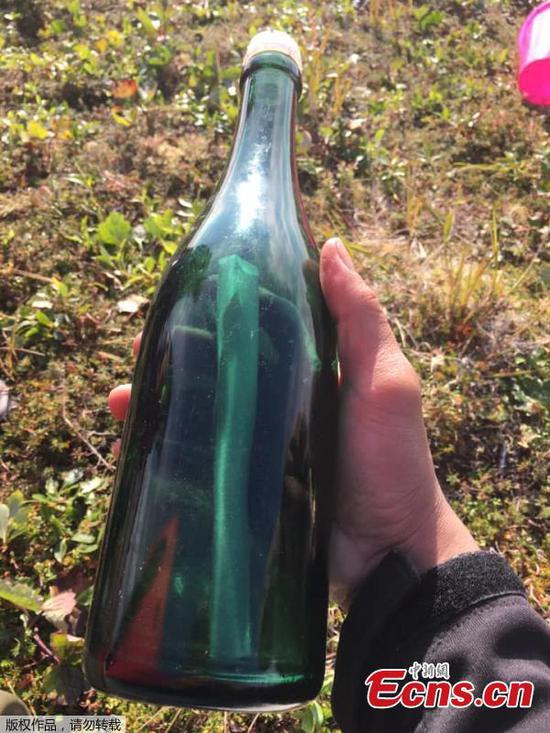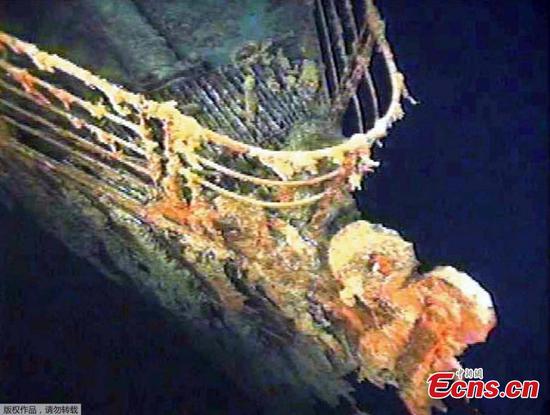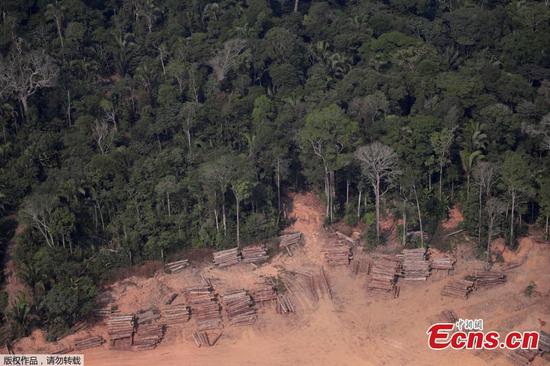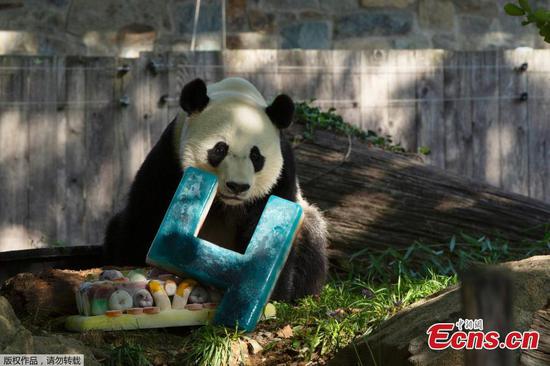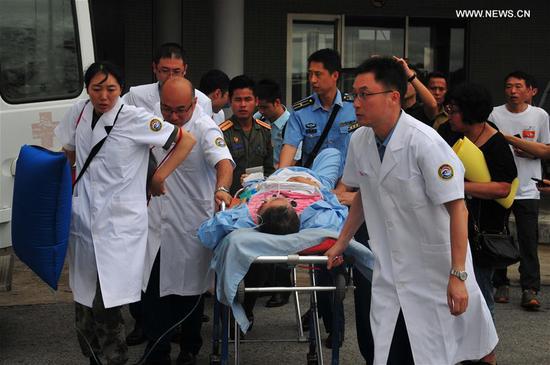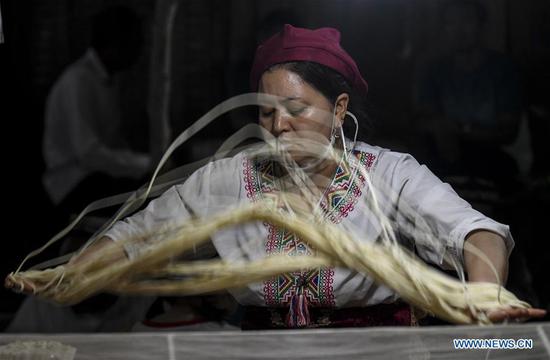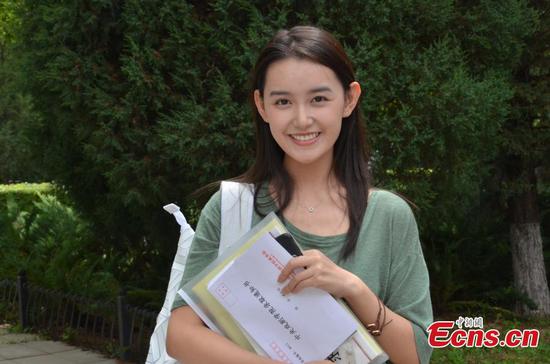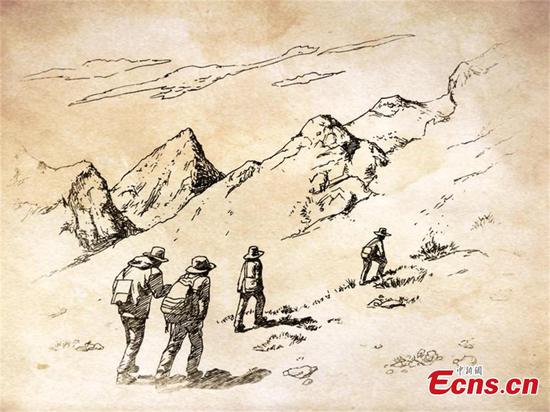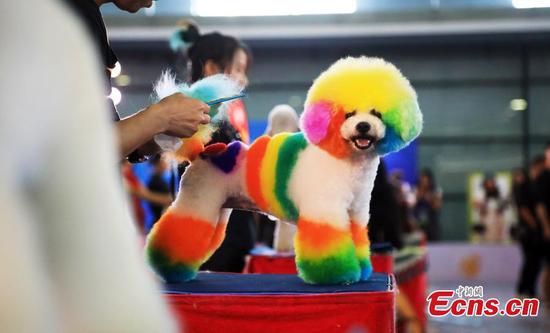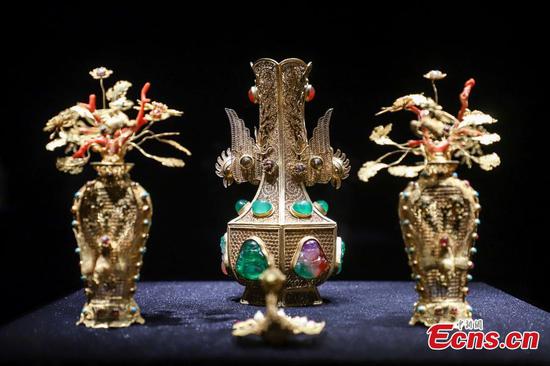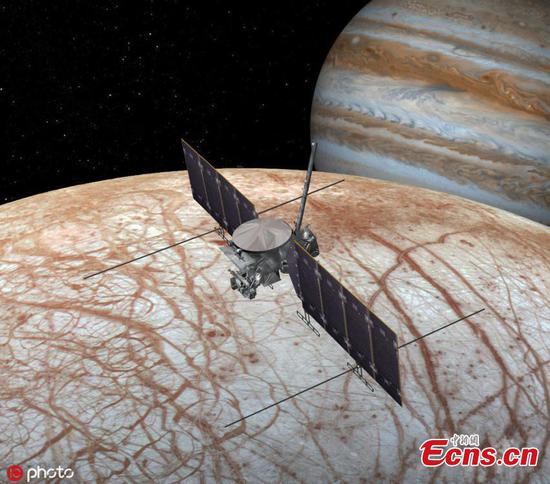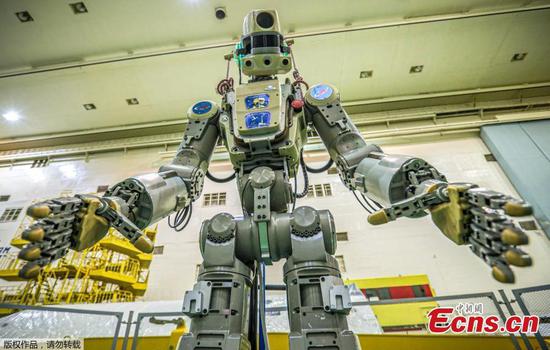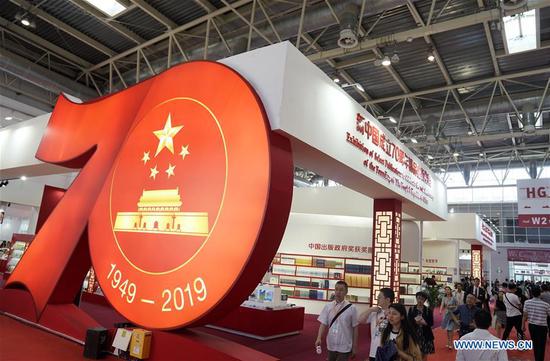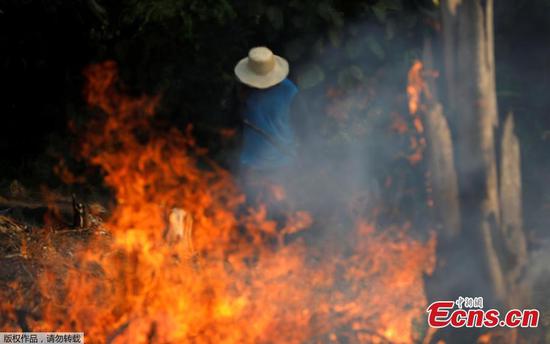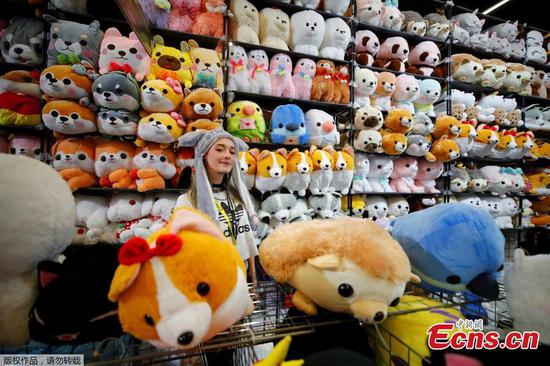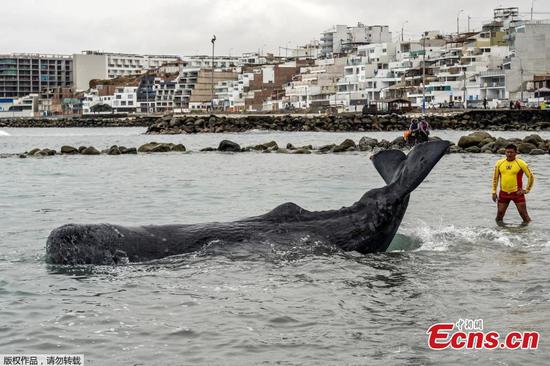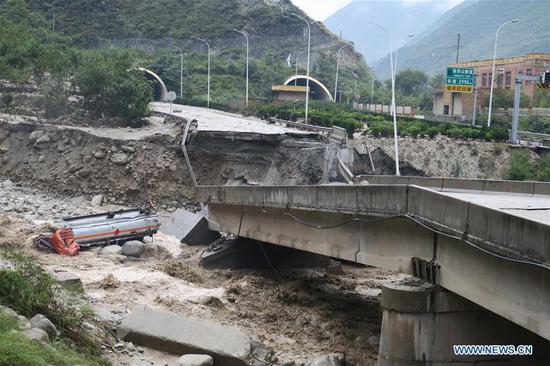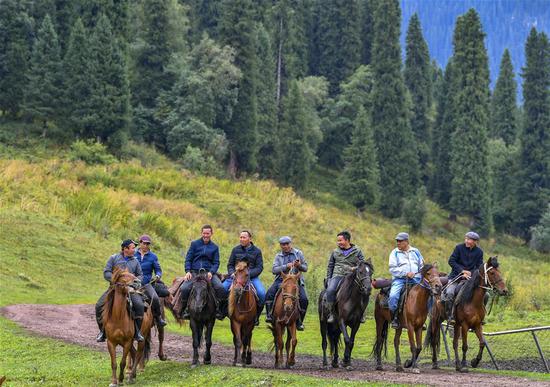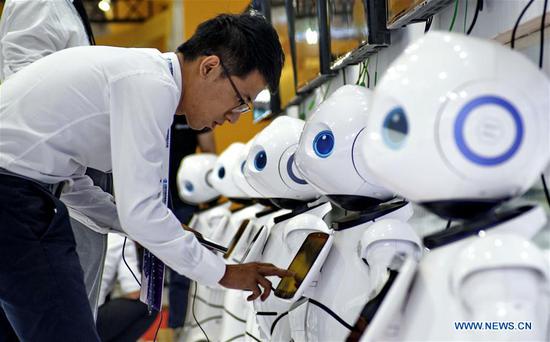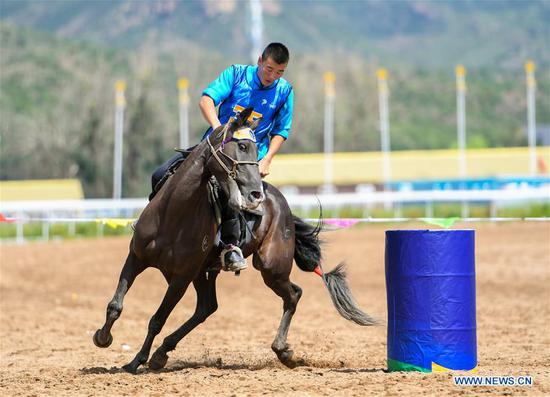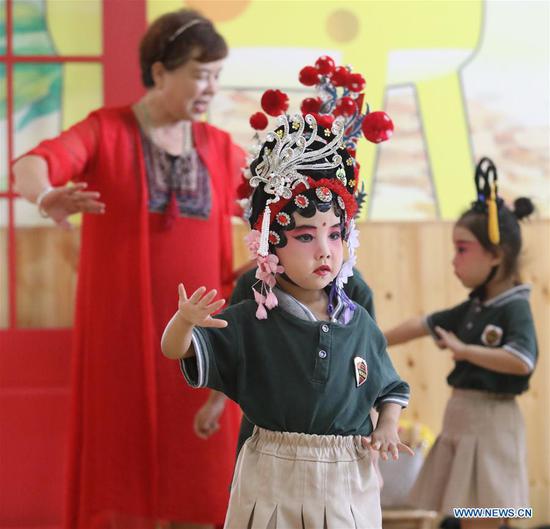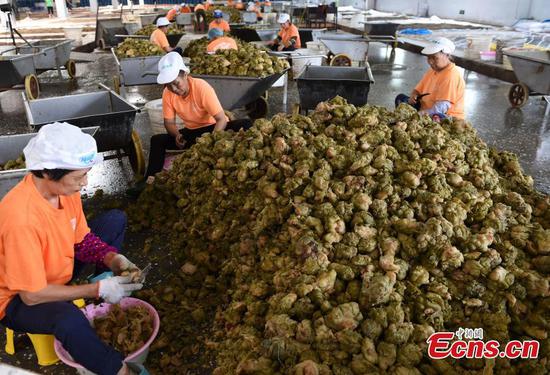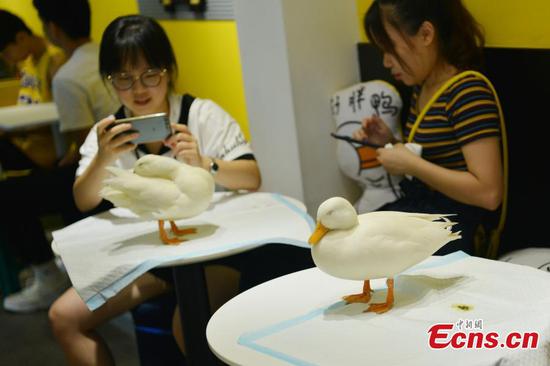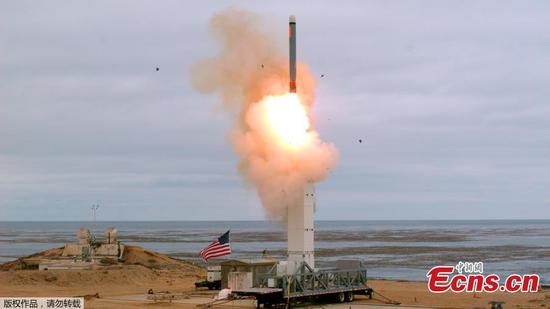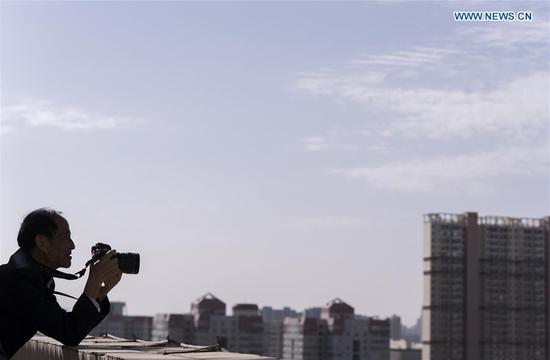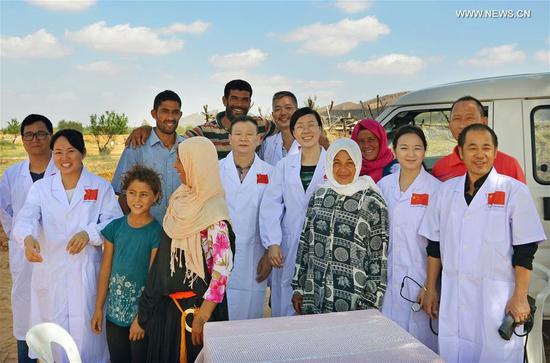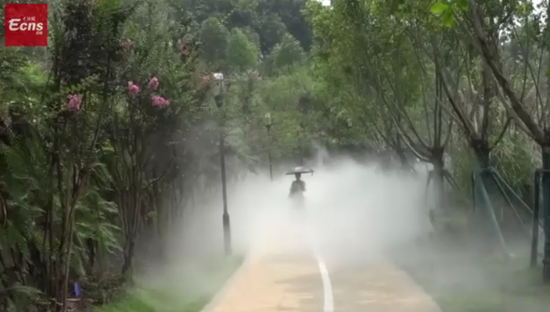Continued internal strife has worsened Hong Kong's economy, officials and lawmakers warned Sunday, calling for restoring social order and strengthening dialogue among all walks of life to show a united front on developing Hong Kong.
The deteriorating external environment and the continued violent protests in Hong Kong are creating an "economic typhoon", Paul Chan Mo-po, financial secretary of the government of the Hong Kong Special Administrative Region (HKSAR), wrote in an article online.
According to Chan, the aggregate unemployment rate of the retail, accommodation and food services sectors, which create 600,000 jobs, has risen from 3.4 percent at the start of the year to 4.3 percent, with 27,500 unemployed.
According to data from the Census and Statistics Department, the number of unemployed persons increased by around 4,200 from 114, 300 in April-June to 118, 500 in May-July.
"In retrospect, the unemployment situation deteriorates much faster than people would expect," said Chan, citing Hong Kong's experience of weathering several economic crises over the past two decades, including the bursting of the dotcom bubble, where unemployment rate rose from 4.4 percent at the end of 2000 to 7.5 percent in mid-2002, and then to 8.5 percent in 2003.
The negative impact of the protracted strife on Hong Kong's economy has begun to emerge, Chan said, adding that it depends on the Hong Kong people's decision whether the impact would be deeper and broader and affect more people's livelihood or not.
"We hope that everyone can let the Hong Kong society calm down first. Let consultation replace conflicts and let dialogue replace fists, so as to safeguard Hong Kong as our common home and avoid more residents' jobs and livelihood being affected," said Chan.
In another article posted online, Secretary for Financial Services and the Treasury James Henry Lau Jr. said that Hong Kong's economic growth is becoming increasingly sluggish due to external factors, including the U.S.-China trade frictions and a possible "hard Brexit" of Britain from the European Union, as well as social strife within the Hong Kong society.
While the macro environment affecting Hong Kong's economy cannot be changed, Lau said that he hopes the Hong Kong society can resolve its internal strife as soon as possible.
Otherwise, international investors may lose confidence in Hong Kong, which will cause long-term harm to Hong Kong, he warned.
Lau urged all parties in the Hong Kong society to put aside their prejudices and antagonism, return to reason, and safeguard Hong Kong's hard-earned achievements.
Chief Executive of the Hong Kong Special Administrative Region (HKSAR) Carrie Lam on Saturday called for dialogue after meeting a group of people who seek to solve the current situation on how to build a platform for dialogue.
"To solve Hong Kong's current problems, there is no other way than to communicate, listen and act," Lau said.
In an interview with local media, Hong Kong Legislative Council member Yiu Si-wing said that due to the protracted protests, a number of indicators of the tourism industry dropped drastically in August, with the largest decline in inbound passenger arrivals.
The impact is most pronounced on tour guides who depend on leading tour groups for a living, said the lawmaker who represents tourism.
Yiu warned that if the protests drag on, the impact would be far-reaching for the service industry.









